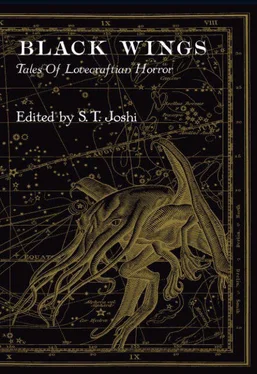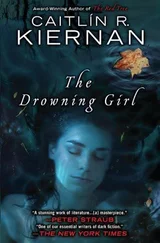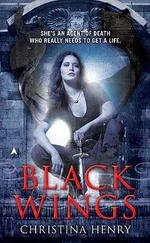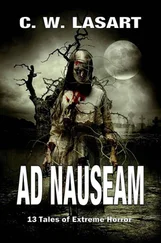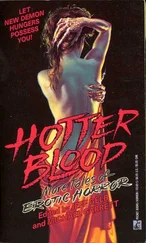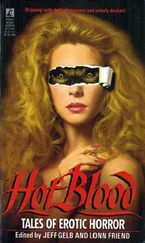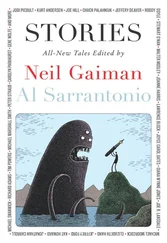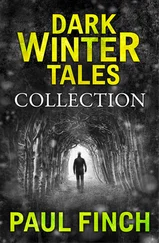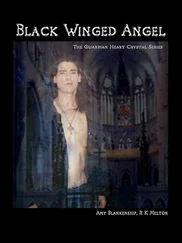The materialistic and atheistic Lovecraft might not have appreciated his resurrection as a ghost in such a story as Jonathan Thomas's "Tempting Providence," but he would certainly have echoed the devotion to his native city that the Lovecraftian specter in this tale exhibits. Jason Van Hollander's «Susie» brings Lovecraft's mentally disturbed mother to life as a means of accounting, at least in part, for the particular form that Lovecraft's imagination took in later years. Veteran Lovecraftian Ramsey Campbell ruminates upon Lovecraft the voluminous letter-writer, envisioning a British correspondent whose increasingly hostile missives to Lovecraft lead to a surprising result. And Sam Gafford's unclassifiable "Passing Spirits" breaks down the barrier between psychological horror and supernatural horror, and perhaps even between fiction and reality, in a tale whose poignancy and sense of inexorable doom dimly echo the fate of Lovecraft's cadre of hapless protagonists. Cumulatively, it may at first glance appear that the stories in this volume are so diverse in tone, style, mood, and atmosphere as to be a kind of nuclear chaos. But if so, it is only a testament to the breadth of imaginative scope presented by the Lovecraftian corpus of fiction. It is also, perhaps, a testament to the starkly contrasting ways in which contemporary writers can draw upon Lovecraft to express their own conceptions and their own visions by using his work as a touchstone. If this is the case, then it augurs well for Lovecraft's endurance among both readers and writers throughout the twentyfirst century.
S. T. JOSHI
Seattle, Washington
June 2009
"The one test of the really weird is simply this — whether or not there be excited in the reader a profound sense of dread, and of contact with unknown spheres and powers; a subtle attitude of awed listening, as if for the beating of black wings or the scratching of outside shapes and entities on the known universe's utmost rim."
— H. P. Lovecraft, "Supernatural Horror in Literature"
Pickman's Other Model (1929)
Caitlin R. Kiernan
Caitlín R. Kiernan is one of the most popular and critically acclaimed writers in contemporary horror fiction. She is the author of the story collections To Charles Fort, with Love (Subterranean Press, 2005) and Tales of Pain and Wonder (Subterranean Press, 2000; rev. ed. 2008) and the novels Silk (Penguin/Roc, 1998; winner of the Barnes & Noble Maiden Voyage Award for best first novel), Threshold (Penguin/Roc, 2001), Low Red Moon (Penguin/Roc, 2003), Murder of Angels (Penguin/Roc, 2004), and Daughter of Hounds (Penguin/Roc, 2007). She has also novelized the recent film Beowulf (HarperEntertainment, 2007). She is a four-time winner of the International Horror Guild Award.
I have never been much for movies, preferring, instead, to take my entertainment in the theater, always favoring living actors over those flickering, garish ghosts magnified and splashed across the walls of dark and smoky rooms at twenty-four frames per second. I've never seemed able to get past the knowledge that the apparent motion is merely an optical illusion, a clever procession of still images streaming past my eye at such a rate of speed that I only perceive motion where none actually exists. But in the months before I finally met Vera Endecott, I found myself drawn with increasing regularity to the Boston movie houses, despite this long-standing reservation.
I had been shocked to my core by Thurber's suicide, though, with the unavailing curse of hindsight, it's something I should certainly have had the presence of mind to have seen coming. Thurber was an infantryman during the war — La Guerre pour la Civilisation, as he so often called it. He was at the Battle of SaintMihiel when Pershing failed in his campaign to seize Metz from the Germans, and he survived only to see the atrocities at the Battle of the Argonne Forest less than two weeks later. When he returned home from France early in 1919, Thurber was hardly more than a fading, nervous echo of the man I'd first met during our college years at the Rhode Island School of Design, and, on those increasingly rare occasions when we met and spoke, more often than not our conversations turned from painting and sculpture and matters of aesthetics to the things he'd seen in the muddy trenches and ruined cities of Europe.
And then there was his dogged fascination with that sick bastard Richard Upton Pickman, an obsession that would lead quickly to what I took to be no less than a sort of psychoneurotic fixation on the man and the blasphemies he committed to canvas. When, two years ago, Pickman vanished from the squalor of his North End "studio," never to be seen again, this fixation only worsened, until Thurber finally came to me with an incredible, nightmarish tale which, at the time, I could only dismiss as the ravings of a mind left unhinged by the bloodshed and madness and countless wartime horrors he'd witnessed along the banks of the Meuse River and then in the wilds of the Argonne Forest.
But I am not the man I was then, that evening we sat together in a dingy tavern near Faneuil Hall (I don't recall the name of the place, as it wasn't one of my usual haunts). Even as William Thurber was changed by the war and by whatever it is he may have experienced in the company of Pickman, so too have I been changed, and changed utterly, first by Thurber's sudden death at his own hands and then by a film actress named Vera Endecott. I do not believe that I have yet lost possession of my mental faculties, and if asked, I would attest before a judge of law that my mind remains sound, if quite shaken. But I cannot now see the world around me the way I once did, for having beheld certain things there can be no return to the unprofaned state of innocence or grace that prevailed before those sights. There can be no return to the sacred cradle of Eden, for the gates are guarded by the flaming swords of cherubim, and the mind may not — excepting in merciful cases of shock and hysterical amnesia — simply forget the weird and dismaying revelations visited upon men and women who choose to ask forbidden questions. And I would be lying if I were to claim that I failed to comprehend, to suspect, that the path I was setting myself upon when I began my investigations following Thurber's inquest and funeral would lead me where they have. I knew, or I knew well enough. I am not yet so degraded that I am beyond taking responsibility for my own actions and the consequences of those actions.
Thurber and I used to argue about the validity of first-person narration as an effective literary device, him defending it and me calling into question the believability of such stories, doubting both the motivation of their fictional authors and the ability of those character narrators to accurately recall with such perfect clarity and detail specific conversations and the order of events during times of great stress and even personal danger. This is probably not so very different from my difficulty appreciating a moving picture because I am aware it is not, in fact, a moving picture. I suspect it points to some conscious unwillingness or unconscious inability, on my part, to effect what Coleridge dubbed the "suspension of disbelief." And now I sit down to write my own account, though I attest there is not a word of intentional fiction to it, and I certainly have no plans of ever seeking its publication. Nonetheless, it will undoubtedly be filled with inaccuracies following from the objections to a first-person recital that I have already belabored above. What I am putting down here is my best attempt to recall the events preceding and surrounding the murder of Vera Endecott, and it should be read as such.
Читать дальше
